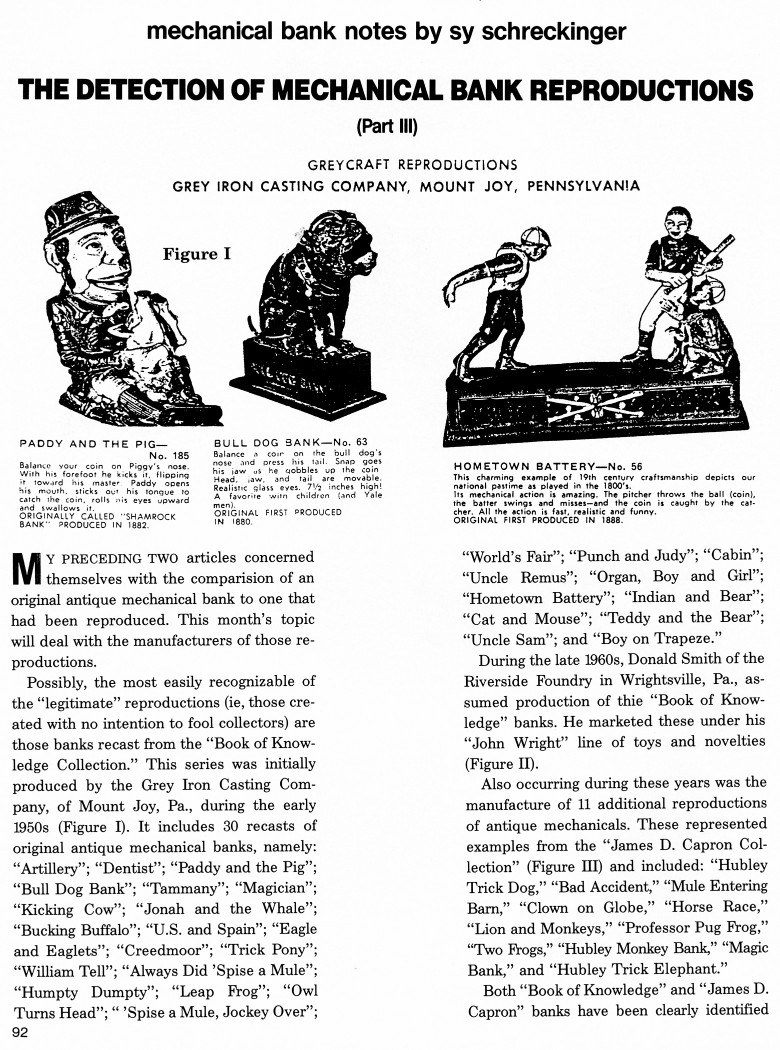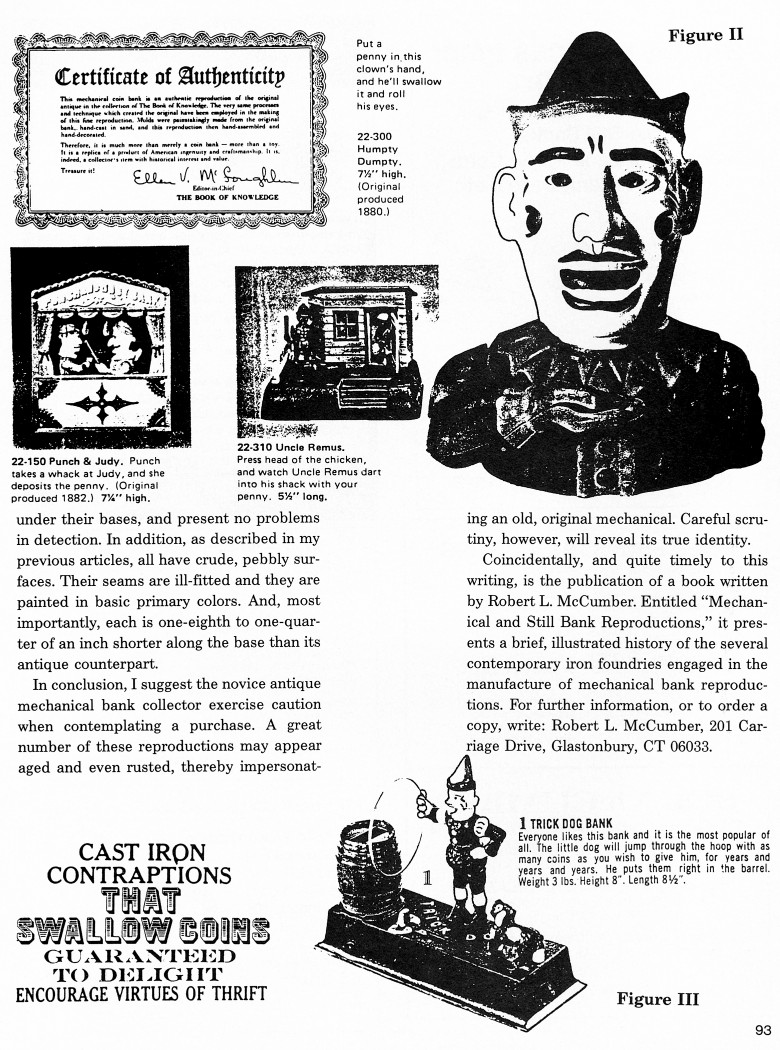|
The Detection of
Mechanical Bank Reproductions
(Part III)
by Sy Schreckinger – ANTIQUE TOY WORLD Magazine – January, 1994
My preceding two articles concerned themselves
with the comparison of an original antique mechanical bank to one that had
been reproduced. This month's topic will deal with the manufacturers of
those reproductions.
Possibly, the most easily recognizable of the "legitimate"
reproductions (i.e., those created with no intention to fool collectors) are
those banks recast from the "Book of Knowledge Collection." This series
was initially produced by the Grey Iron Casting Company, of Mount Joy,
Pa., during the early 1950s (Figure I). It includes 30 recasts of original
antique mechanical banks, namely: "Artillery"; "Dentist"; "Paddy and the
Pig"; "Bull Dog Bank"; "Tammany"; "Magician"; "Kicking Cow"; "Jonah and
the Whale"; "Bucking Buffalo"; "U.S. and Spain"; "Eagle and Eaglets";
"Creedmoor"; "Trick Pony"; "William Tell"; "Always Did 'Spise a Mule";
"Humpty Dumpty"; "Leap Frog"; "Owl Turns Head"; Spise a Mule, Jockey
Over"; "World's Fair"; "Punch and Judy"; "Cabin"; "Uncle Remus"; "Organ,
Boy and Girl"; "Hometown Battery"; "Indian and Bear"; "Cat and Mouse";
"Teddy and the Bear"; "Uncle Sam"; and "Boy on Trapeze."
During the late 1960s, Donald Smith of the Riverside Foundry in
Wrightsville, Pa., assumed production of the "Book of Knowledge" banks.
He marketed these under his "John Wright" line of toys and novelties
(Figure II).
Also occurring during these years was the manufacture of 11
additional reproductions of antique mechanicals. These represented
examples from the "James D. Capron Collection" (Figure III) and included:
"Hubley Trick Dog," "Bad Accident," "Mule Entering Barn," "Clown on
Globe," "Horse Race," "Lion and Monkeys," "Professor Pug Frog," "Two
Frogs," "Hubley Monkey Bank," "Magic Bank," and "Hubley Trick Elephant."
Both "Book of Knowledge" and "James D. Capron" banks have been
clearly identified under their bases, and present no problems in
detection. In addition, as described in my previous articles, all have
crude, pebbly surfaces. Their seams are ill-fitted and they are painted in
basic primary colors. And, most importantly, each is one-eighth to
one-quarter of an inch shorter along the base than its antique
counterpart.
In conclusion, I suggest the novice antique mechanical bank collector
exercise caution when contemplating a purchase. A great number of these
reproductions may appear aged and even rusted, thereby impersonating an
old, original mechanical. Careful scrutiny, however, will reveal its true
identity.
Coincidentally, and quite timely to this writing, is the publication
of a book written by Robert L. McCumber. Entitled "Mechanical and Still
Bank Reproductions," it presents a brief, illustrated history of the
several contemporary iron foundries engaged in the manufacture of
mechanical bank reproductions. For further information, or to order a
copy, write: Robert L. McCumber, 201 Carriage Drive, Glastonbury, CT
06033.
|


